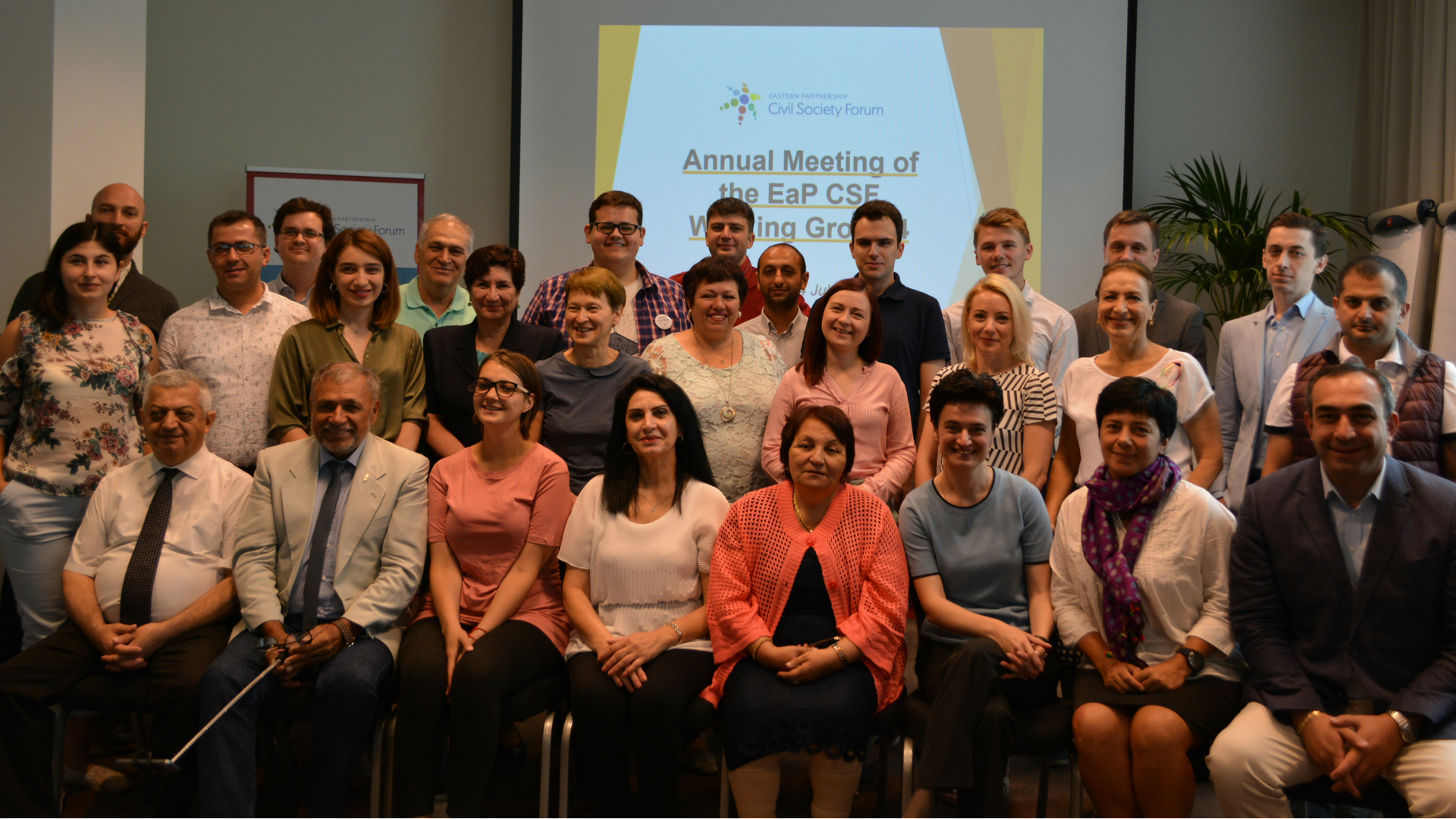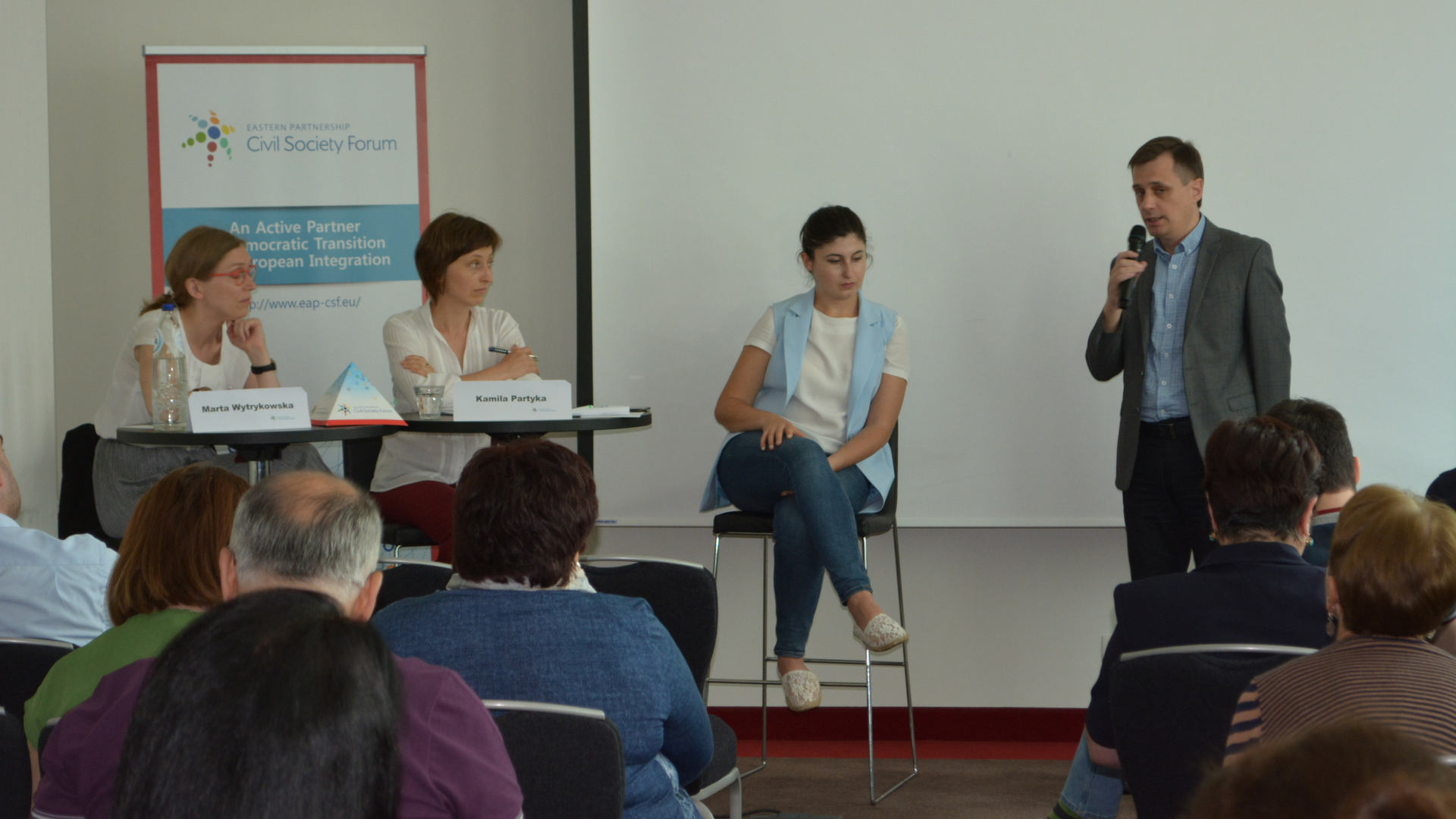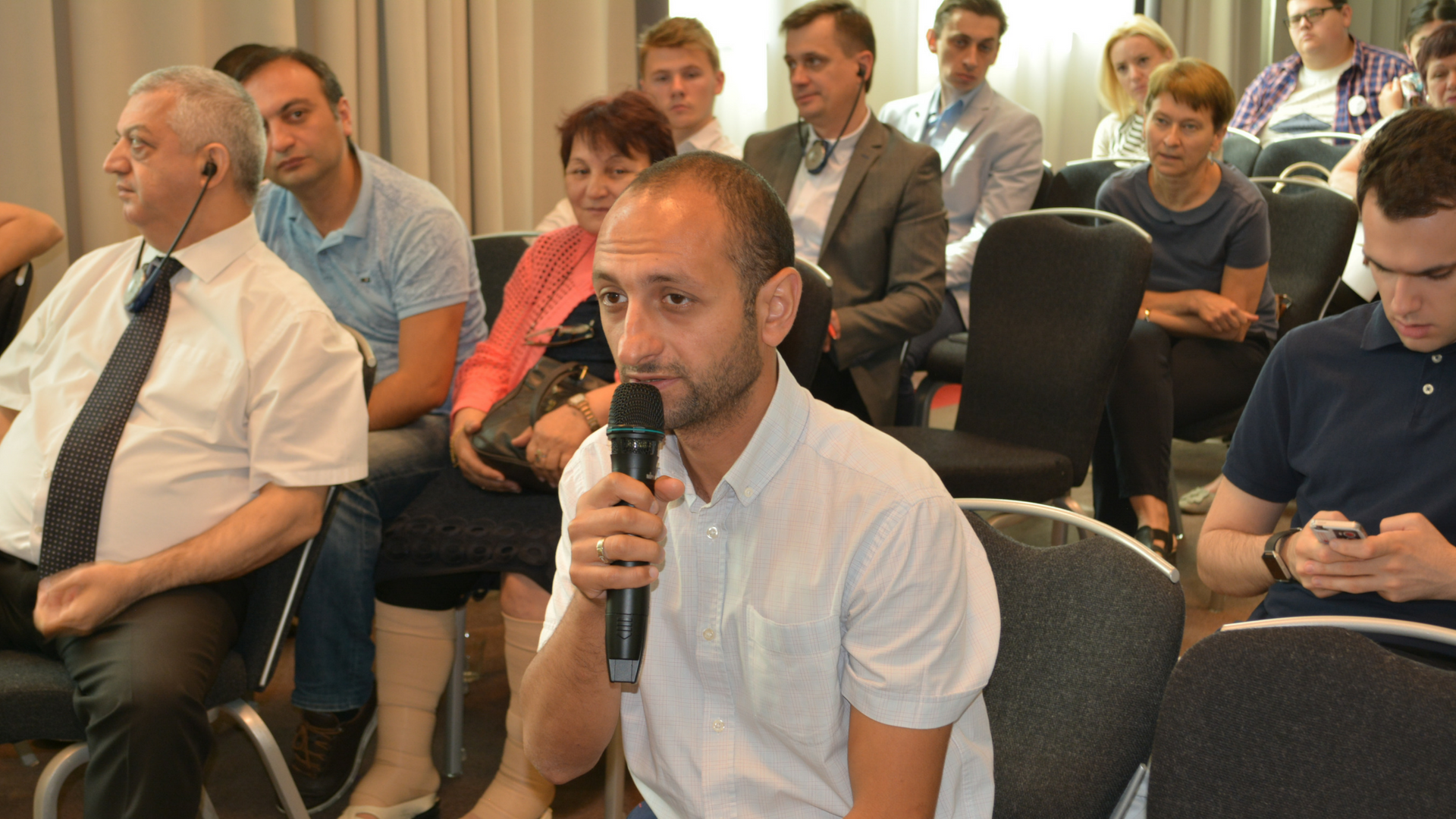Brussels, 16 July 2018
Working Group 4 Meeting 2018
The members of the Working Group 4 “Contacts between people” (WG4) of the Eastern Partnership Civil Society Forum (EaP CSF) gathered in Brussels for their annual meeting on 3-4 July.
After two days, they were briefed on the EaP CSF internal reform process, and revised the current WG4 Annual Plans, communication strategies, and the WG4 projects from the 2018 Re-granting scheme. They also had the opportunity to receive trainings on effective messaging and writing successful proposals for grants, and to present messages to the EU stakeholders attending the meeting, Marta Wytrykowska, European External Action Service (EEAS), and Kamila Partyka, DG Education and Culture (DG EAC).
The meeting was opened by the Steering Committee member, Mikalai Kvantaliani, Association “New Group”. While presenting the agenda, he stressed the need to address EU stakeholders and revise the current WG4 Annual Plans, devised during the Annual Assembly in Tallinn. Together with Mr Kvantaliani, Director of the Secretariat, Natalia Yerashevich elaborated on the internal mechanisms of the Forum and its latest internal reform. One of the suggestions was to send a proposal to the experts working on internal reform, asking them to develop a code of conduct in accordance with the Istanbul Principles for CSOs Development Effectiveness.
Another contribution came from Mariia Symonova, who shared her experience from a recent Platform 4 meeting, giving six useful tips for those planning to attend similar events as part of Platforms and Panels. What is more, Ms Symonova highlighted the importance of using different communication strategies when addressing civil society and governments.
The meeting was also a chance to introduce three projects from the 2018 Re-granting Scheme, presented by Artur Ghazaryan (“Youth for entrepreneurship in rural areas”, Armenia), Hovsep Khurshudyan (“Youth Economic Empowerment through Social Entrepreneurship”, Armenia) and Tatyana Poshevalova (“Creative EaP”, Belarus).
On Day 2, members had an opportunity to attend two training sessions, “Fundraising and writing successful project proposals for grants” by Grigor Yeritsyan, Armenian Progressive Youth and “Effective Messaging and how to successfully target EU-specific audience/stakeholders” by Darya Mustafayeva. The objective was to boost members’ communication skills, to allow them to fully engage in official EaP meetings and with their stakeholders.
Later meetings were also attended by representatives from EU institutions. Marta Wytrykowska, European External Action Service (EEAS) was interested to hear more about the upcoming EaP Youth Conference in November and programmes for young entrepreneurs. Ms Wytyrkowska was also receptive to the idea of conducting a study on internal migration and displacement, as suggested earlier by Iulia Kharashvili, and incorporating its findings into EEAS reports.
Kamila Partyka, DG Education and Culture (DG EAC) introduced some core concepts behind the new Culture and Creativity Programme, focusing on social entrepreneurship. The programme also includes EaP countries, meaning all six countries will need to consider its implementation and questions relating to quality assurance in education. Ms Partyka then turned to civil society and its role in this process, both as a watchdog and partner in discussions.
Our WG4 members presented to Ms Wytrykowska and Ms Partyka the messages they elaborated during the trainings and the sessions in small groups:
- WG4 recommended that EU should support the development of youth entrepreneurship through existing programmes and support tools by extending EU-Eastern Partnership Culture and Creativity Programme and EaP quotas within Erasmus for Young Entrepreneurs
- In Platform 4 Work Programme and Panel on Education, Culture and Youth, culture and creativity should not be addressed exclusively in the context of youth. Civil society should have an opportunity to influence priorities in the third stage of EU-EaP Culture and Creativity Programme, or indeed any other programmes foreseen in this field. It is proposed to promote EaP Culture Forum as a flagship project and devise a tool to prepare EaP countries’ key cultural actors and civil society
- In order to promote affordable quality education and training in EaP countries and ensure their compliance with the Standards and Guidelines for Quality Assurance in the European Higher Education Area, the priority must be to focus on accreditation of non-formal education diplomas (training, workshops etc.), equal work conditions and access to the education market for all education providers
- Peacebuilding is a cross-cutting issue that should be further addressed within 2020 Deliverables and WG4 sub-group format. It is suggested that a small group on peacebuilding is to conduct research on the effects of displacement and development in EaP countries – with the focus on internal migration (IDPs, refugees, asylum seekers etc.)



